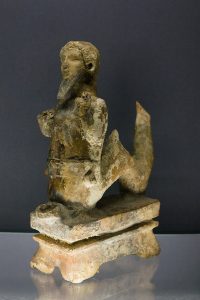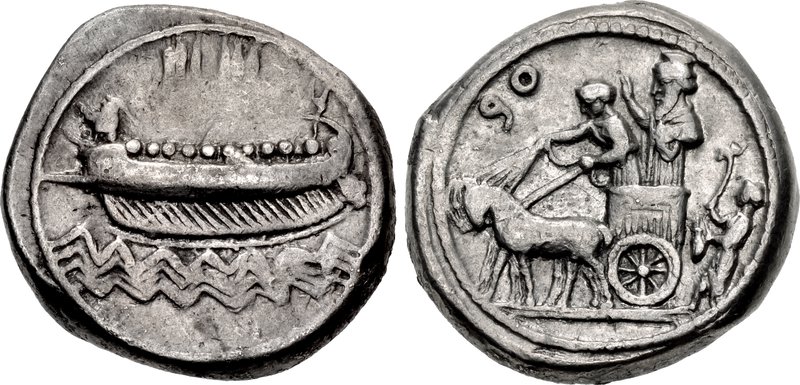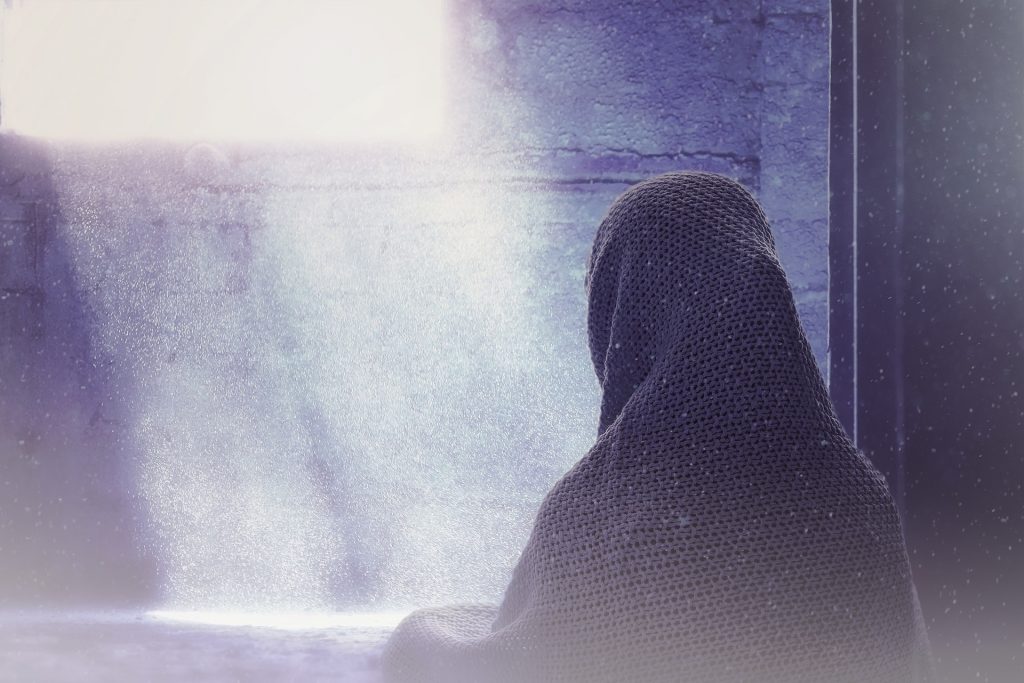Elijah and the Widow
Learn about the historical context for this story of Elijah. The kingdom of Israel is no longer united, but has been split into two kingdoms, a northern kingdom and a southern kingdom. These stories take place in the northern kingdom.

Who was Ahab?
Ahab was king of the northern kingdom of Israel. He married Jezebel for political reasons, hoping to cement political connections between the wealthy trading cities of Phoenicia and northern Israel. Allowing the Canaanite worship of Baal into the country would have been another sign that the Phoenicians were welcome in the land. The Bible text says that Ahab worshipped Baal, the Canaanite God. Elijah appears on the scene as an opponent to Ahab's actions and a worshipper of the God of Israel.
Historically, King Ahab was known for his construction accomplishments, including palaces and city development.

Distant Shores Media/Sweet Publishing, CC BY-SA 3.0 <https://creativecommons.org/licenses/by-sa/3.0>, via Wikimedia Commons
What was Ahab and Jezebel's religion?
They would have worshipped the Caananite gods, the most important of which was Baal, the lord of rain and dew. He was also the storm god. You will notice that rain, dew, and water play an important role in the stories of Elijah, showing them to be under the control of YHWH, the God of Israel. The stories of Elijah begin with an immediate drought.

Royal Museums of Art and History, Public domain, via Wikimedia Commons
Who were the Phoenicians?
Phoenicians called themselves Canaanites in their own language. They were a collection of city states on the Mediterranean sea coast north of Israel. A city state is a city that is independent from any other country or nation and manages their own business. Tyre and Sidon were two major city states.
Zarephath was a town a few miles south of Sidon close to the Israel border. We know from history that the primary deity of Sidon was Baal, although Astarte was also an important god for the city. The town of Zarephath would not necessarily have been a safe place for a Jewish prophet who was totally against the regional religion.

Classical Numismatic Group, Inc. http://www.cngcoins.com, CC BY-SA 2.5 <https://creativecommons.org/licenses/by-sa/2.5>, via Wikimedia Commons
What was the social status of widows?
Widows and orphans were seen as weaker members of society who needed to rely on support from others. Many Jewish texts in the Bible talk about the importance of making sure widows and orphans are supported by the larger society. Certain Biblical prophetic texts criticize a society that enriches the rich and neglects the widows and orphans.
